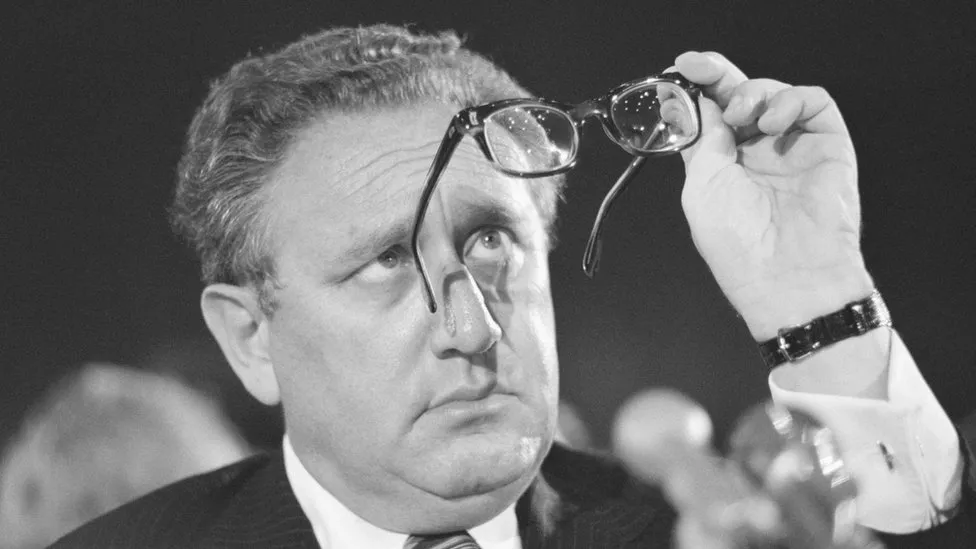Henry Kissinger: Divisive diplomat who shaped world affairs

Henry Kissinger: Divisive diplomat who shaped world affairs.
The late Henry Kissinger divided opinion during his lifetime. He died at the age of 100 in his Connecticut home.
In addition to receiving the Nobel Peace Prize, he was dubbed a war criminal for his commitment to “realism” in foreign relations.
During his two stints as Secretary of State and National Security Adviser, he vigorously promoted détente, which thawed relations with China and the Soviet Union.
During the Arab-Israeli conflict of 1973, he used shuttle diplomacy to end the conflict, and he helped negotiate the Paris Peace Accords to end America’s long Vietnam nightmare.
What his supporters called “Realpolitik” was condemned as immoral by his critics.
The Argentinean military’s “dirty war” against its people is alleged to have been conducted under his nose, and he may have even supported the bloody coup that overthrew the Chilean leftist government.
Upon hearing that Kissinger had been awarded the Nobel Prize, comedian Tom Lehrer famously declared that “political satire is obsolete”.
He was a naturally shy teenager, with a sharp accent and a great love of football that never left him.
In addition to attending high school by night, he also worked at a shaving brush factory during the day; he had planned to study accountancy, but was drafted into the armed forces instead.
In his assignment to the infantry, his brains and his language skills were put to good use by the military intelligence services. Despite only holding the rank of Private, Kissinger fought in the Battle of the Bulge and managed a captured German town.
At the end of the war, he joined Counter Intelligence. It was his job to track down former Gestapo officers, with absolute authority to arrest and detain suspects.
